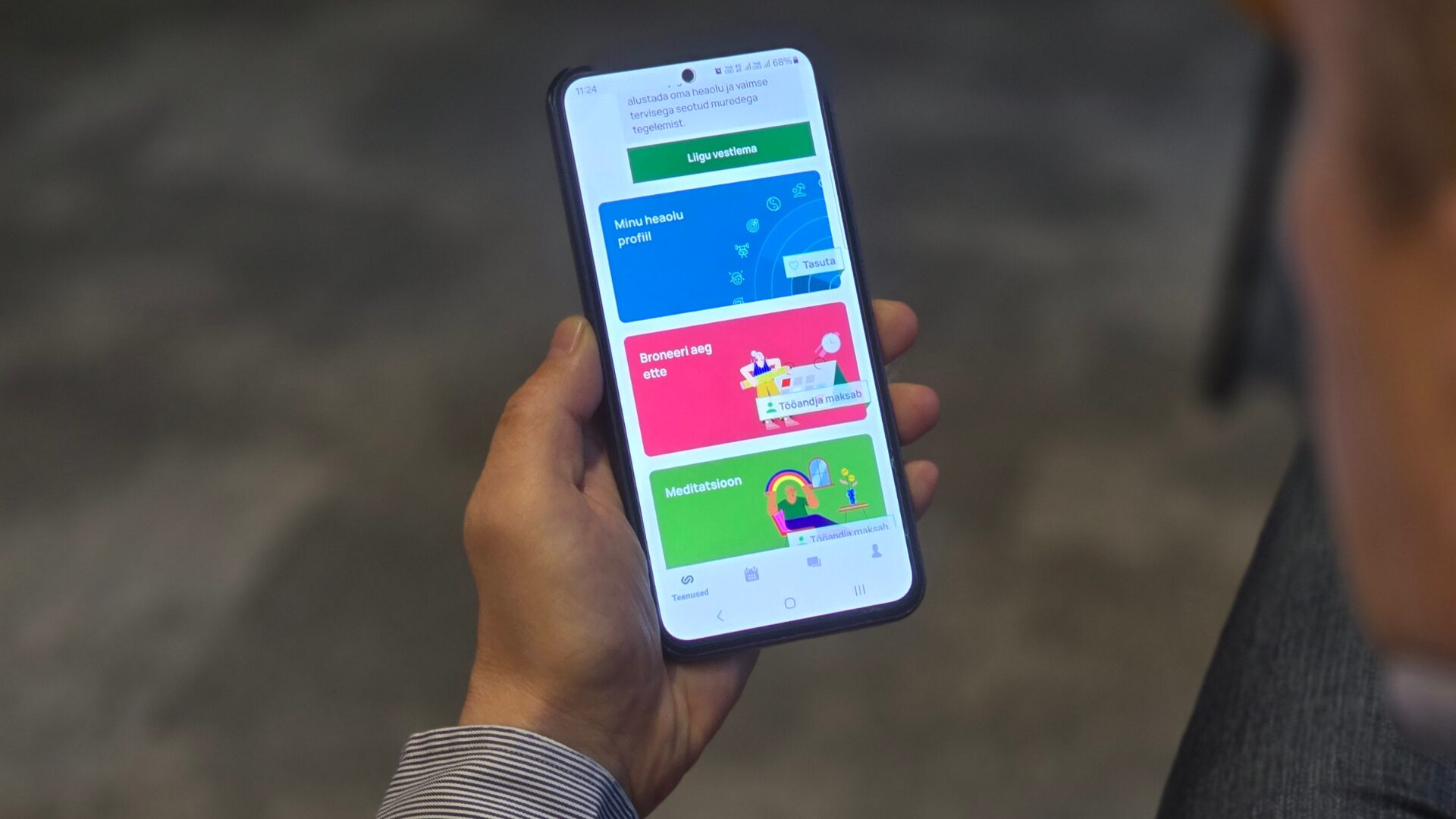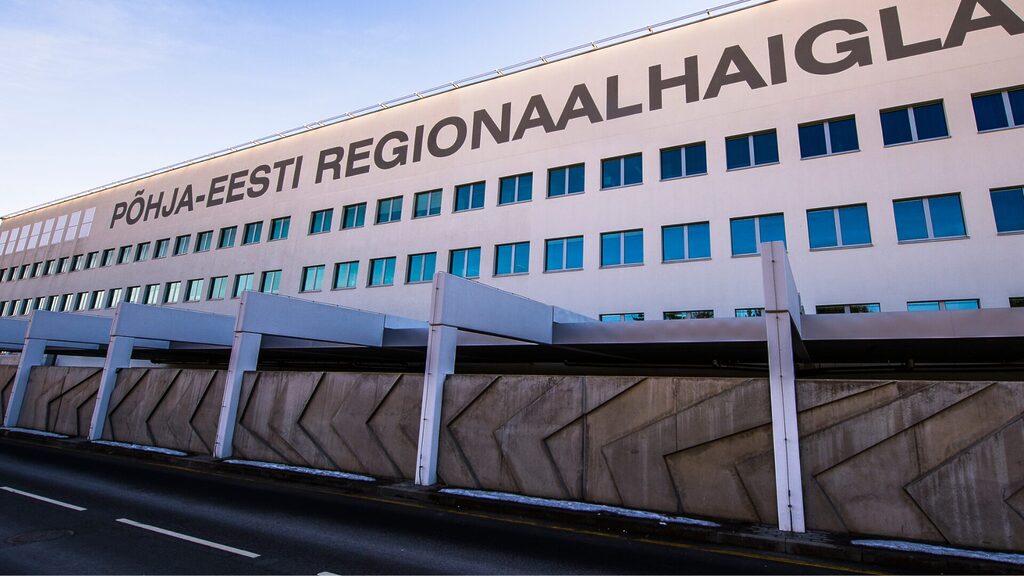19.05.2025
A unique collaboration between North Estonia Medical Centre and Siffi supports the mental health of healthcare workers

A collaboration between Siffi and North Estonia Medical Centre (NEMC) – both members of the Tehnopol HealthTech community – is enabling healthcare professionals to easily assess their mental well-being and quickly access support when needed.
Healthcare work involves numerous psychosocial risk factors, making comprehensive support essential. According to Kristel Oha, Head of Occupational Health and Safety at NEMC, they have been working for years on mitigating psychosocial risks and creating a positive psychosocial work environment at the hospital. “We value our employees — they are our greatest asset, and their well-being is extremely important to us. Last year, we were awarded the Silver Label for Mental Health Friendly Workplaces, which reassures us that we are on the right path,” said Oha.
Supporting employees’ mental health is a continuous process, and needs evolve over time. That is why the North Estonia Medical Centre is constantly looking for new opportunities and convenient solutions to offer its staff — which led to the collaboration with Siffi.

Making mental health monitoring easier
The partnership began in 2022 through the Horizon Urban Tech project, led by Tehnopol. At an international hackathon, the North Estonia Medical Centre sought solutions to several challenges, including one focused on supporting and promoting employee mental health: “Matching mental health problems with precise personalized support.” An international jury selected Siffi, a platform developed by MinuDoc OÜ, as the most promising solution in this category. Siffi – “A personalised dashboard for strengthening employee mental resilience” – received funding from the European Union’s Horizon 2020 research and innovation programme. The goal was to create a user-friendly platform enabling employees to assess and analyze their mental well-being and receive individually tailored tips and recommendations to improve it.
Tarmo Pihl, co-founder and CEO of Siffi, noted that several factors contributed to the collaboration’s success — above all, the real challenge NEMC genuinely wanted to solve. “Another key success factor was strong cooperation. NEMC’s expectations and requirements were well understood and effectively incorporated into the product,” said Pihl.
Terje Peetso, Innovation Manager in the Medical Division at NEMC, agreed that the starting point must always be a well-defined problem. “We generally have a positive attitude toward new approaches and a willingness to try them. However, a key prerequisite is that we have identified the problem ourselves — not that we are trying to match a problem to an externally offered solution.”
Peetso emphasized that piloting isn’t always necessary: “If an effective, evidence-based solution already exists, repeated testing may not be required. However, with many solutions, each user has their own specific context — starting points, capabilities, stakeholders involved, and budget. These factors may necessitate testing the solution within their own environment before full implementation. It’s important that a pilot is not followed by another pilot. If the testing period was successful, the next step must be finding ways to implement the solution in practice.”
Merilin Varsamaa, Head of Tehnopol’s Health Technology Division, served as the key mentor supporting the collaboration between Siffi and the North Estonia Medical Centre within the Urban Tech innovation project. According to Varsamaa, the partnership between NEMC and Siffi presents a unique opportunity to implement evidence-based mental health practices specifically in the healthcare sector, helping to strengthen healthcare workers’ emotional resilience and overall well-being. “This is strategically important not only for retaining and motivating staff but also for supporting the sustainability and growth capacity of the entire organisation,” Varsamaa emphasized.
The platform is in active use
The solution is now actively in use. According to the Head of Occupational Health and Safety at NEMC, the platform has been introduced to employees since April, and interest has been high from the very beginning. “I believe we’ve created a solution that genuinely fits the needs of our employees and the positive feedback confirms that,” noted Kristel Oha.
Tehnopol has also been using Siffi’s digital well-being solution since 2023, and its impact has been noticeable — employees value it as a practical and personalized tool that helps prevent burnout, support mental balance and improve job satisfaction in a rapidly changing work environment.

Potential to expand to other healthcare institutions
According to Tarmo Pihl, the collaboration with the North Estonia Medical Centre is a strategic step — not only to support the hospital’s own staff, but also to serve as a model and benchmark for the entire Estonian healthcare sector.
“The level of mental strain in the medical field is extremely high, and it won’t disappear on its own,” he stated. “We believe that offering structured psychological support should be a standard component of every hospital’s internal support system — not an exception.”
Pihl noted that end-user needs are surprisingly similar — mental health support must be fast, simple, and reliable. However, the differences emerge in the implementation phase. “In larger organisations, you need to consider more complex IT and employee management systems, the need to integrate with HRIS platforms, and an entirely different approach to internal communication,” the Siffi CEO explained.
He pointed out that, for example, in hospitals with hundreds of shift-based specialists, traditional onboarding workshops are not feasible — meaning that information sharing must be designed in a smarter and more flexible way.

The power of HealthTech Community support
According to Terje Peetso, involving the Tehnopol HealthTech Community in collaborations like this is highly beneficial, as it allows stakeholders to better understand each other’s needs, share experiences, and when needed pool expertise and resources. “The best solutions are born out of collaboration, and even failures become shared learning opportunities that make us collectively wiser and more experienced,” she affirmed.
Tarmo Pihl added that the partnership initiative launched by Tehnopol between large-scale healthcare ‘buyers’ and startups was a key driving force behind the collaboration between Siffi and the North Estonia Medical Centre. “In large organisations, decision-making involves many considerations. But projects that allow for low-risk piloting and testing before full-scale implementation help lower those barriers significantly.”
When asked to advise other healthcare providers considering collaboration with startups, Peetso encouraged them to broaden their perspective: “There may already be a solution to your problem out there. Let’s stay open-minded — day-to-day work often becomes safely routine, and we might not notice that something could be done differently. But an outside perspective can see what we might overlook.”
She also stressed the importance of involving end users from the very beginning when piloting or implementing a new solution: “Training, feedback, iterative improvement, and motivation — these are keywords we must not forget. I really like the interpretation of the KPI acronym: Keep People Interested.”
Pihl emphasized that the most important factor is maintaining focus: “Public sector partnerships can be appealing, but they often require a lot of time and involve long decision-making cycles,” he explained.
“I recommend first focusing on segments where you can quickly validate your service and demonstrate tangible impact. Once you have clear results and a working model, it becomes much easier and more strategic to take steps toward public sector engagement. Be prepared for the long game — patience and persistence are key to generating real value from such collaborations.”

















